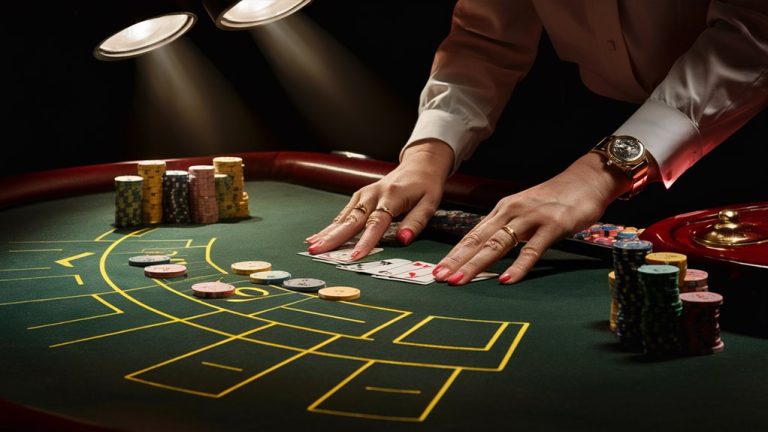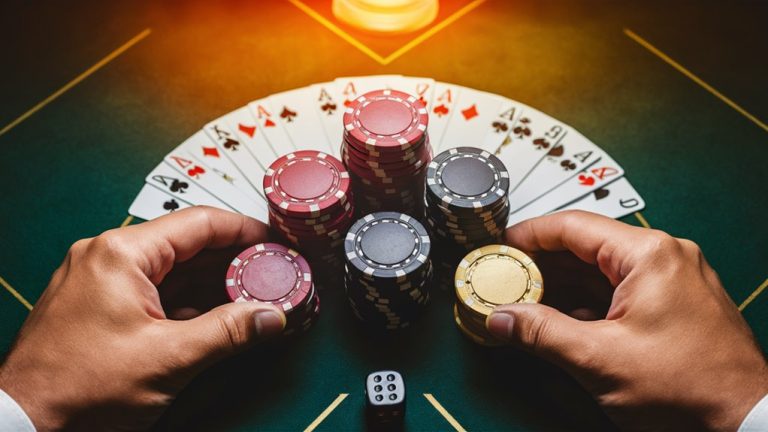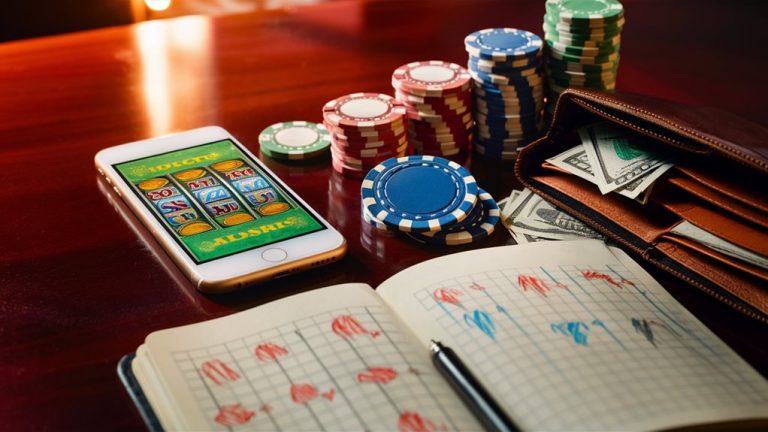
The Math in Live Dealer Games
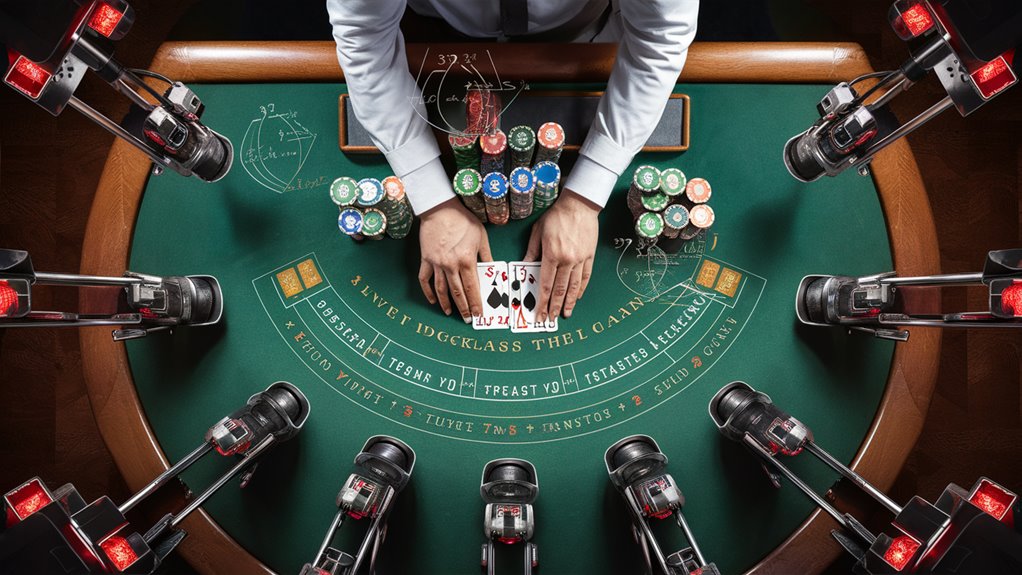
Live dealer casino games are where chance theory meets real fun. These smart set-ups use big math plans to mix human touch with true number accuracy.
Main Math Ideas
Live dealer games build on deep chance models and fancy number groupings. Each card handed out and every spin keeps within set math rules. The house edge changes by game:
- Blackjack: 0.5-2% if you play right
- European Roulette: 2.7% math win 공식 인증업체 목록
- Baccarat: 1.06% on banker bets
Smart Watch Systems
Today’s live dealer areas use sharp code systems that always:
- See betting trends right now
- Check fair play with number tests
- Keep risk in check with models
- Watch how dealers are doing
Math Precision Meets Real People
While you meet nice dealers, a hidden web of chance math and careful number guards make sure:
- The same game results
- Checks on fair play
- Odds figured out on the go
- Exact payout math
The mix of strong math plans with live people makes a game place that’s fun yet well-checked, where each detail is rooted in tested chance rules.
Chance Models in Live Games
Chance Models in Live Games: A Deep Look
Math Basics of Game Chance
Chance models in live play areas set the big lines for how games go and what players can hope for.
These models use set chance groups, mostly in big casino games like blackjack and baccarat.
Every hand given makes a stand-alone event in a set play space, with results driven by fancy number groups because no cards go back in once drawn.
Deep Chance Uses in Roulette
Looking at roulette plans needs ongoing chance groups and math ideas on shapes to map ball runs.
Real things like wheel speed and ball push make complex chance fields that go with number motion rules, giving spot-on outcome guesses.
Smart Game Flow Checks
Markov chains work well for modeling how games move, where state change chances rely just on what’s happening now.
In baccarat checks, the next hand’s chances depend on what cards are left.
Deep spread checks and risk math show result range, letting us guess win rates and risk edges with math exactness.
Key Parts of Game Chance:
- Set chance groups in card games
- Ongoing chance plans for roulette results
- Math grouping uses
- Markov chain checks for game states
- Number spread tells
- Risk edge math
House Edge and Cash Back Math
Getting the House Edge and Cash Back Math
Chance Models and Simple Math
Finding the house edge and money back rates sets the math base for looking at live dealer casino games. These key scores tell both casino wins and player hoped returns.
In blackjack, the house edge math thinks about perfect play moves against dealer chances, mostly giving edges between 0.5% to 2% based on how the rules change.
Baccarat Money Back Rates and Fee Plans
The guessed return in baccarat is found by adding together result chances and pay sums.
The Banker bet keeps a 1.06% house edge, while the Player bet has a higher 1.24% edge.
The usual 5% fee on winning Banker bets big shifts these figures, heavily changing the end house win rate.
Roulette Chance and House Win
Roulette house edge guesses rely on deep chance math.
European roulette with one zero has a 2.7% house edge (1/37).
American roulette, with an extra double zero spot, ups the house win to 5.26% (2/38).
These numbers are key in getting the guessed worth and spread in live dealer spots, where deal speeds and bet limits play into how much you might lose each hour.
Deep Gaming Math and Returns
These math rules are key in game checks, letting us get precise numbers for player cash backs and house wins.
Knowing these figures is a must for both folks running game cash flow and players looking for the best bets in live dealer spots.
Number Rules Behind Card Games
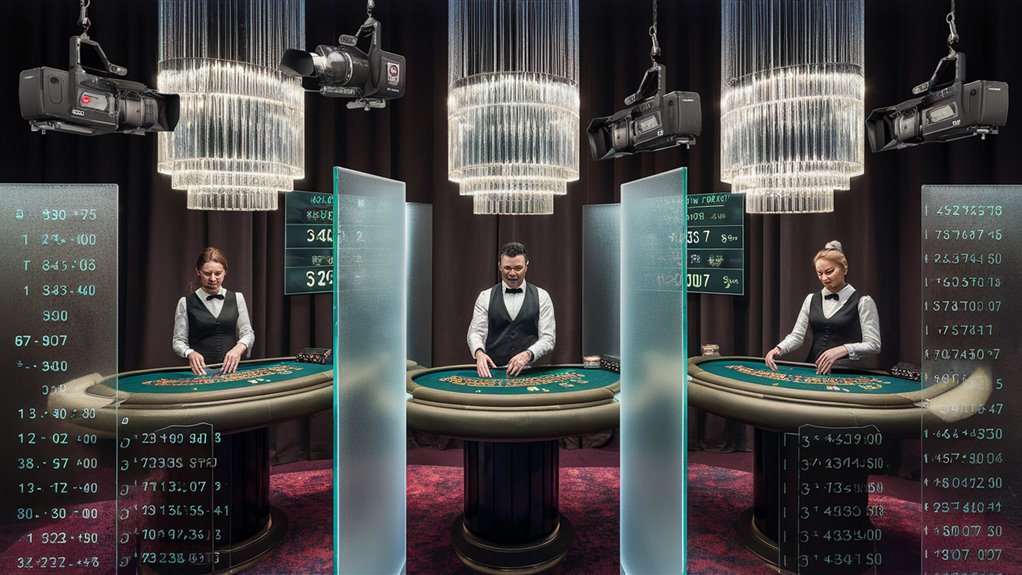
Getting Chance Models in Card Games
Card game number rules are built on deep chance groups and math plans that set the ties between dealt cards, player moves, and how games end.
These rules tap into combo math to get exact chances of special card runs and hand setups in different play cases.
Deep Math Modeling Moves
Markov chain study makes a base for modeling move chances between game steps, especially in games like blackjack.
In a usual 52-card deck system, chance changes count in card removal effects, which truly change how results might come out.
Fancy number group models are key tools for looking at card draws without putting them back, giving true math pictures of play cases.
Hard Chance Checks and Multi-Player Numbers
Multi-thing chance groups let us get exact chance math for hands with more than one player.
These deep models think about both links and solo events, seeing how each dealt card changes what’s left in the deck.
The number base covers spread tells, guessed worth math, and spread checks, giving a full count of number doubt across different game times.
Main Stats Parts
- Chance change checks
- Fancy number group models
- Card removal effect maths
- Multi-Player Chance Set-ups
- Guessed Worth Checks
Live Dealer Game Info Checks: Making the Most Through Data
Real-Time Info Get and Study
Live dealer game times make full data sets that give key tips for folks who want to make their spots better.
Smart watch systems track must-know numbers including bet styles, player move points, game ends, and dealer work numbers across thousands of plays each day. This real-time info get lets us check how we’re doing right away and change our plans as needed.
Number Modeling and Making Performance Better
Number checks of session info show key styles in how players join, how game flow works, and keeping the house edge.
Regression study finds links between dealer work numbers, player stay rates, and the whole game cash flow. Studies show the best dealer speed keeps 50-60 hands per hour while making players happy and upping table cash.
Smart Checks and Risk Care
Sharp codes process session data logs to spot possible odd things that might mean tech troubles or strange bet styles.
Spread checks make sure number generators and shuffling ways are fair, keeping true play across all games.
Player life worth math uses many numbers including:
- Time info
- Average bet size study
- Game likes list
- How players join
This deep study helps to set the right table limits, dealer times, and game type choices, making things run best and bringing in the most cash in the live dealer area.
Deep Risk Care Systems in Live Dealer Spots
Real-Time Watching and Study
Risk care systems are key in safe live dealer spots, using many-layer watching ways to keep from money risks.
These smart set-ups use real-time code checks to watch bet styles, table limits, and full player acts across many game times.
Number Style Spotting and Stop
Deep risk care set-ups use spread alert signs that start when bet styles move away from set number lines.
The systems work out win/loss number guesses against real show numbers, letting us spot fast if folks might be working together or playing with an edge.
Changing bet limits shift based on deep player profiles and game shake numbers, keeping risk care at its best.
Math Modeling and Always Watching
The base math models use chance ideas and deep number studies to keep things running right.
These systems make risk scores with hard math using bet-to-money ratios, odd time info, and game-specific chance changes. Using Personalization to Enhance the Casino Visit
Auto tools keep an eye on game truth while keeping both operator and player needs safe through quick answer ways and real-time changes.
Main Risk Care Parts
- Real-time code watching
- Style change spotting
- Changing bet limits
- Number chance checks
- Auto risk scoring
- Always session tracking
